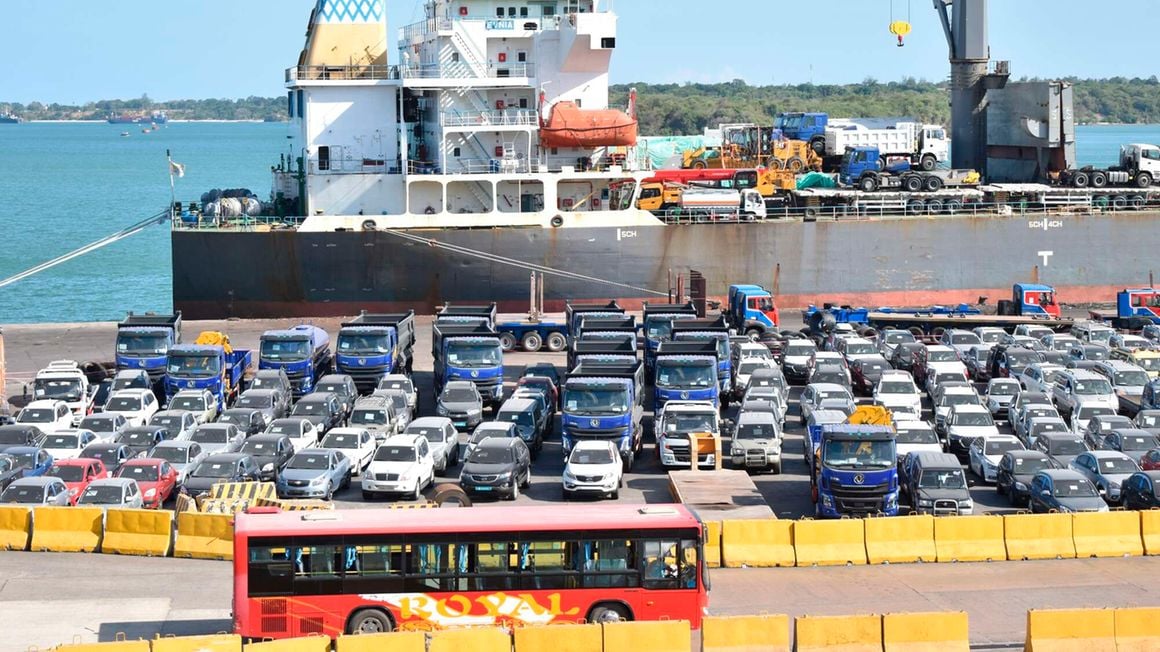Business
How Bonded Warehouses will Change Car Import Taxes

A multi-agency meeting on ease of doing business, co-chaired by Trade Cabinet Secretary Trade Moses Kuria and his Transport counterpart, Kipchumba Murkomen, in Mombasa on April 14, resolved “to streamline and introduce bonded warehouses for imported used vehicle inspection.”
The move is part of the Ruto administration’s plan to reduce the cost of doing business in Kenya, with the Port of Mombasa serving as a key trade hub for the East African Community bloc of seven nations.
So, what exactly does the proposed shift in inspection to bonded warehouses imply? BD attempts to explain how the resolution will affect used car dealers and importers.
A bonded warehouse is what?
Every year, the Kenya Revenue Authority grants a license to this location for the storage of goods with outstanding taxes.
Private companies own the bonded warehouses, but they are kept under lock and key, and only a KRA customs officer is authorized to enter them.
Where can I find a bonded warehouse?
The location of the premises is flexible. The admission and release of goods from the warehouses is regulated by KRA, regardless of whether this occurs at the Port of Mombasa or another location.
For instance, new car dealers sometimes have bonded warehouses inside their showrooms where the vehicles are handled, stored, and possibly modified before being sold. however, entry to the room is controlled by KRA.
What occurs currently when a dealer or private person imports a used car?
At the container freight station (CFS), used automobiles are inspected. Dealers or private individuals must pay all import taxes and remove the vehicles from the CFS within a month.
When they don’t evacuate, the KRA’s commissioner of customs gives them a month to clear the cars or risk having to sell them at auction.
In fact, the KRA gives owners of overstayed cargo, including used cars, a month’s notice to pay up and clear them or risk having them put up for auction.
What aspects of the suggested arrangement will change?
It indicates that instead of CFS, the used cars will be delivered to bonded warehouses where inspection will take place.
In other words, the same location where new cars are currently inspected will also be used for used cars.
What benefit does the vehicle having it deposited in a bonded warehouse rather than CFS?
On removal from the premises, import duty on used cars stored in a bonded facility will be paid.
The used cars may initially be kept in bonded warehouses for a period of six months while duty is being paid.
However, individuals or importers may submit an application to the KRA to extend the time limit for another six months or for any other period that is at the discretion of the Commissioner for Customs.
Accordingly, provided the KRA gives the go-ahead, the goods may be kept at the bonded facility for a year or more before the import duty is paid.
The facilities are used by auto dealers, particularly those engaged in cross-border trade, to store used cars while they source clients in the neighbouring nations.
What price benefits will the new shift bring to a buyer of a used car?
According to the Kenya Auto Bazaar Association and the Car Imports Association of Kenya, the suspension of import taxes, such as excise duty and value-added tax, will free up money and allow dealers to order used cars in greater quantities.
They contend that the substantial imports have the potential to bring down car prices. Additionally, it helps them manage their inventory more effectively by timely replenishing the units and avoiding delays that are common with cargo imported by sea.
What problems does the management of the bonded facilities face?
Authorities have previously voiced complaints about problems with bonded warehouse management. They have cited revenue loss and dealer abuse of the duty suspension window.
This is done by requesting and obtaining permission to keep warehoused goods, including cars, for a longer period of time on the bonded property.
In fact, through Gazette Notice No. 3350 in 2020, the KRA used Regulation 64 (k) of the East African Community Customs Management Regulations to formally prohibit the deposit of many high-value goods, such as used cars and fast-moving cargo, in bonded warehouses.
In April 2021 Gazette Notice No. 3738, in response to complaints that Kenya was about to engage in cross-border trade, that notice move was, however, reserved.
Has the law always prohibited the storage of used cars in bonded facilities?
Dealers claim that despite the revocation of Gazette Notice 3350 of 2020, which listed used cars as dutiable goods to be stored in bonded warehouses, the KRA has placed restrictions on them and only permits importers of new cars to benefit from the deferred tax benefits.
They claim that in 1992, they were barred from using bonded facilities.







